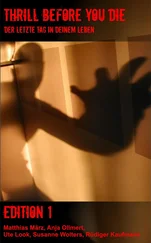It was already too dark to see the yellow and black POSTED signs at the bottom of the field, but John looked in that direction and thought about them. He had a vision of himself and a ten- or eleven-year-old boy, Patrick in a decade and change, marching one crisp November morning off into these woods in search of a buck: the offspring, perhaps, of one of the animals that had had dinner last night in this very garden. The signs, by then, would have been gone a long time, pried from their trees with the hooked end of a hammer.
John’s father had never hunted, but his grandfather had. His great-grandfather, too, a man he had never met but the architect-literally-of this house on the hill behind them and the elegant carriage barn that once had stood beside it. John knew that barn only from black-and-white photographs and a painting that hung in the hallway on the second floor of the house, because his grandfather had replaced it with the less sophisticated, more functional two-car garage long before he’d been born.
He watched Spencer stand and wondered exactly what kind of tirade would be triggered in his brother-in-law if he mentioned that he had gone hunting last November and planned to go again in another three and a half months. If Spencer knew that he found himself browsing Web sites for hunters and purchasing magazines about tracking. If Spencer somehow discovered that most days in a locked cabinet in the guest bedroom in their house in Vermont was a rifle and two little bottles of buck urine that-sometimes John couldn’t believe this himself-he had doused on his legs last year every time he went into the woods in search of deer.
Lord, how large would be the explosion if Spencer knew that the only reason there wasn’t a rifle in that cabinet right now was because it was currently in its gun bag in the trunk of his car, stashed there because he was taking it to a gunsmith on Monday morning? He thought of those fifteen-thousand-pound Daisy Cutter bombs the United States had dropped a few years back in Afghanistan. Spencer, he decided, would be Daisy Cutter mad. His brother-in-law was thirty-eight and change, and every single day of his adult life he had worked for the likes of the Animal League, the Wildlife Partnership, and, for the last six or seven years, FERAL-each group more extreme than the one that preceded it.
Actually, the part that would truly have disgusted Spencer wasn’t the notion that his brother-in-law, the lawyer, was capable now of firing a bullet into a deer: That would infuriate him, all right, but it wouldn’t sicken him. The part that would send ol’ Spencer over the edge was the reality that when he was in the woods he carried with him a knife with a massive handle and a four-inch blade to field-dress the deer once it was dead. Cut away its penis and its genitals, cut through the breastbone and yank up its windpipe. Extract the heart, the entrails, and the liver.
In truth, John wasn’t completely sure he could field-dress a deer without vomiting. He hadn’t gotten a deer yet so he hadn’t had to eviscerate one. But he had studied the manuals, and in his knapsack was a set of instructions with the sort of photographs that only a pathologist, a medical student, or a hunter could love.
He considered whether things might be different if Spencer had a son, too, but he doubted it. Spencer was meant to have a daughter: a child he could take to Oliver, The Phantom of the Opera, and-two times that John was aware of, so Charlotte could see how different actors handled the lead role-Annie Get Your Gun. John knew he could try to explain to his brother-in-law his vision of days alone in the woods with his son-the two of them occasionally whispering as they walked through the brush, sharing the sorts of intimacies he never shared with his own father-but he knew that none of it would register. You don’t sing show tunes with a boy in the woods. Besides, all Spencer would hear was the fact that John wanted to take his son into the forest to kill something. The sense of independence-the feel of the tall trees that constituted the canopy and the small ones around which was built the understory-would never make sense to him. Nor would he ever acknowledge that hunting was a sport that demanded genuine skill. The hard reality was that Spencer would be appalled by what he would see as a betrayal… and then deeply disappointed.
Almost as if he knew that someday in the future he would be holding a gun at the edge of this very field and would thereby have earned Spencer’s wrath, he thought he should top off the well of goodwill that existed between the two men-at some point he might need the water in that well to be lapping at the brim-and so he finished off his beer and wandered to the far side of the garden.
“What do you say?” he called back to Spencer. “Should we try to scare the piss out of a couple of uppity deer with some good old-fashioned human pee?”
“Damn right,” his brother-in-law agreed, gently squeezing the dog one last time before rising himself, and there in the gathering dark the two men urinated along the edge of the lupine.
IN THE BRIEF MOMENT between when she unsnapped a cup on her nursing bra and brought her son’s mouth to her nipple, Sara Seton felt a rush of the crisp twilight air on the sensitive skin on her breasts and she shivered. Then she gently pressed her son’s face upon her, his wet maw a lamprey attaching itself to the areola, and she felt her nipple stretching like toffee and then disappearing into the infant’s needy mouth. She held her son against her like he was a blanket against the chill, and with her fingers she stroked the down on his head that passed for hair.
“Fourteen-ten,” Charlotte shouted gleefully, holding the birdie in one hand and the racket in the other. The girl was preparing to serve what she and Willow clearly expected would be the game-winning point. Across the net Nan and Catherine stood with their rackets raised as if they were saluting royalty, and while Sara understood that in badminton this was the proper position to await the birdie, she thought they looked ridiculous.
She wasn’t happy here on the porch, but she didn’t want to go inside with Patrick: Everyone else was outside, either playing badminton or inspecting the gardens. Although this house was extraordinarily cheerful when the sun was high, on cloudy days or at night she found the place capable of inducing a Zoloft-resistant depression. The place was over a century old, and its best feature was the simple fact that it existed at the very top of a ridge of foothills near the White Mountains and it had a wraparound porch facing east, south, and west that allowed one to savor the location. The clapboards, not yet in desperate need of fresh paint but certainly looking a tad tired these days, were dove gray, and the latticework along the bottom of the porch was a long series of diamond-shaped cross-checks. There was fish-scale trim on the first floor and a massive cupola bedroom-Nan’s-on the third. The house had three more bedrooms on the second floor and a fourth off the kitchen on the first, but other than Nan’s third-story empire-adjacent to her bedroom was a small study, her own bathroom, a walk-in closet, and a nook she used to catalog a lifetime’s worth of photo albums and handwritten correspondence-most were oddly shaped and difficult to furnish despite their size. They had knee walls or dormers or the side of a chimney exactly where you might want to place a bureau. Moreover, the bedrooms-again, Nan’s being a notable exception-were dark because the window frames were strangely thin, the curtains upon them were heavy, and the shades had springs so tired they never went all the way up. There were no ceiling fixtures in any of the rooms but the kitchen and the dining room, and every room could have used an additional outlet and a third (or, in some cases, a second) floor lamp. Clearly, the Setons-and Spencer, too-loved the dusky aura of the myriad ill-lit, melancholic rooms that made up the house, the narrow corridors that groaned underfoot, but most of the time she found the place merely gloomy.
Читать дальше











